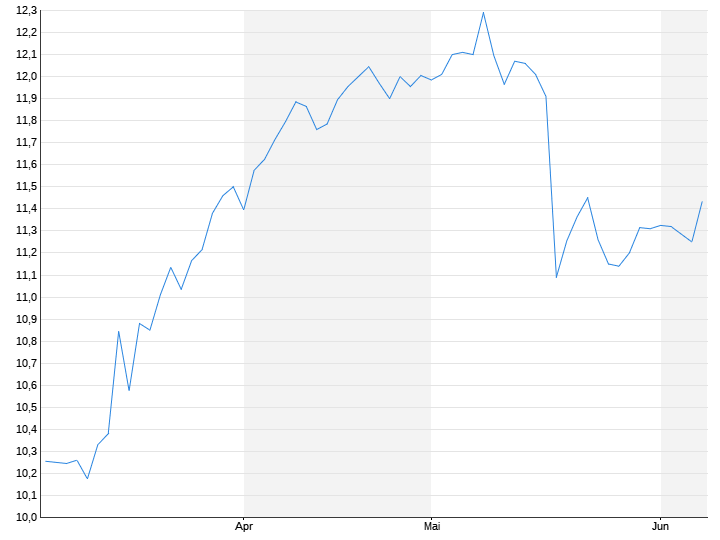Fees could increase
Authority wants to grant network operators higher returns
06/07/2023, 4:16 p.m
The expansion of the energy grid costs billions. The responsible regulatory authority now wants to offer companies greater incentives for investments. In the end, this could lead to higher electricity costs.
The Federal Network Agency wants to grant electricity and gas network operators higher returns and thus promote the expansion of the network for renewable energies. The head of the authorities, Klaus Müller, referred in particular to “the current development of the interest rate environment”, which means that “tangible incentives for investments among network operators” are needed. This could increase costs for consumers. According to a new calculation, there could be a return on equity of around 7.09 percent from the current 5.07 percent for investments in new systems from next year, the authority announced. For investments in old systems, the fixed 5.07 percent remains.
Network operators such as EON, EnBW and numerous municipal utilities have been demanding higher returns for a long time and point to the rise in interest rates and high inflation. The costs in the billions will be passed on to electricity and gas customers. The shares of EON and EnBW increased by a good two percent.
Netzagentur President Müller emphasized that at the same time the portfolio financed at low interest rates over the long term should not be excessively remunerated. “The network operators’ returns are paid for by the network users, i.e. households, industry and commerce. The additional load there must be limited to what is absolutely necessary,” explained Müller.
Annual adjustment in the future
The rate of return on equity also influences the prices that electricity and gas consumers have to pay. Because every electricity supplier has to pay a usage fee for using the power lines, which is passed on to the consumer via the electricity bill. The higher the return on equity, the higher the network charges. The Federal Network Agency did not say which increases are to be expected.
The largest European network operator EON spoke of a first step in the right direction. “The energy transition is accompanied by an enormous need for investment in the distribution grids,” said a spokesman. Millions of decentralized generation systems and new consumers such as heat pumps and wall boxes would have to be integrated into the distribution grid. This must be reflected in the overall regulatory framework. In the redefinition, however, the interest on existing assets is left out. The network agency announced that it would now give companies the opportunity to comment and make a decision by the end of the year.
In addition, Müller plans to make the interest on equity more flexible. They should no longer be set every five years, as was previously the case, but every year. “Rather, we want to be able to look at the interest rate development year after year and act accordingly,” said the head of the authorities to the “Handelsblatt”. A rigid definition does not make sense. Associations and companies now have until August to comment on the Bundesnetzagentur’s proposals. At the end of the year, the authority wants to finally set the interest rates.
